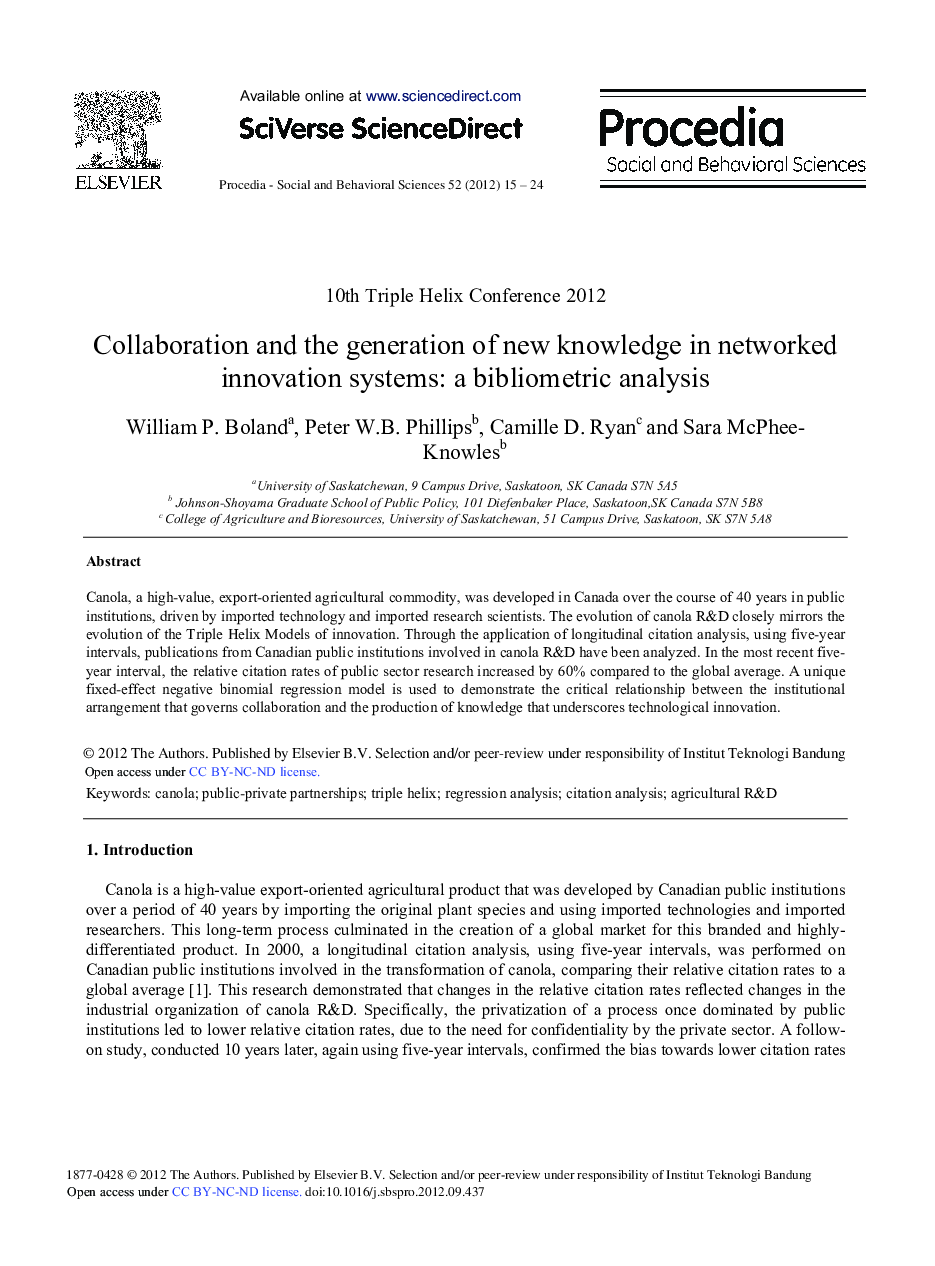| Article ID | Journal | Published Year | Pages | File Type |
|---|---|---|---|---|
| 1120616 | Procedia - Social and Behavioral Sciences | 2012 | 10 Pages |
Canola, a high-value, export-oriented agricultural commodity, was developed in Canada over the course of 40 years in public institutions, driven by imported technology and imported research scientists. The evolution of canola R&D closely mirrors the evolution of the Triple Helix Models of innovation. Through the application of longitudinal citation analysis, using five-year intervals, publications from Canadian public institutions involved in canola R&D have been analyzed. In the most recent five- year interval, the relative citation rates of public sector research increased by 60% compared to the global average. A unique fixed-effect negative binomial regression model is used to demonstrate the critical relationship between the institutional arrangement that governs collaboration and the production of knowledge that underscores technological innovation.
